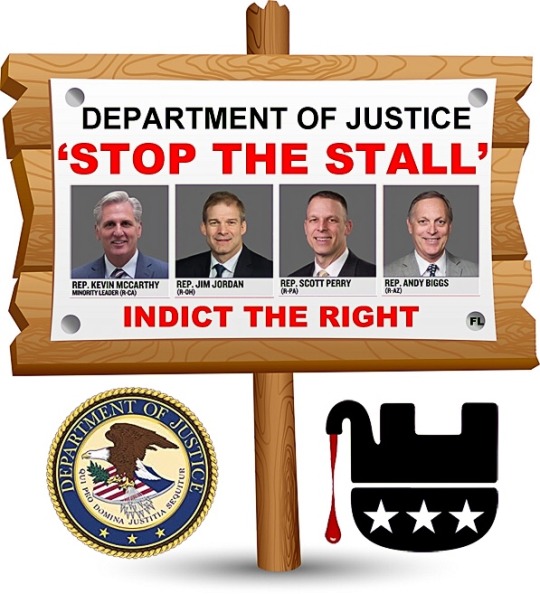All the shit inside the head of an old dude who likes what he liked when he was a kid, + extra rants, lol All posts are to be "allegedly".
Don't wanna be here? Send us removal request.
Text

“If these psychos are going to go after our kids we’ve got to be prepared for it. We don’t have to like the reality that we live in, but it is the reality we live in. We’ve got to deal with it.”
JD Vance at a rally in Phoenix
Fuck allllll the way off & when you get there keep fucking off
Here's the deal
It is the guns...the overabundance of weapons in America
Only In America

4 notes
·
View notes
Text

Nine years later - 40+ years in public office - and STILL caring, still fighting for the working class.
Bernie is a great guy. Always working for the working man.
168 notes
·
View notes
Text
Fascinating.
Don't think I've seen them all together in one big video like this before
75K notes
·
View notes
Text
Be Careful of Amazon
Prices on Amazon are not always the lowest. I have recently been checking the store prices locally and finding that some Amazon prices are more than three times the prices locally.
I suspect that some people are buying the items from the lowest price sources on Amazon, and simply reselling them. Might be a good business idea especially if the lowest cost suppliers occasionally run out of stock.
4 notes
·
View notes
Text
Elie Mystal has Merrick Garland weighed up as useless.
And I have to agree.....
youtube
1 note
·
View note
Text
Hakeem Jefferies makes a speech worthy of Obama
youtube
0 notes
Text
Ukrainian President Zelensky spoke to Congress and to the American people with more accuracy, grace, and humility in 20 minutes than a certain failed, treasonous, ignorant, grifting, uncouth, narcissistic, raping, phony piece of orange feces has spoken in his entire fucking life. And I am willing to bet that President Zelensky would be able to pronounce "Yosemite" correctly.

22 notes
·
View notes
Video
Fascinating but such a great design that's simple to understand.
33K notes
·
View notes
Text
Years ago, a Colonoscopy Nurse Asked Me.....
Have you ever had an enema?
And instinctively I replied.....
No, but I've heard a lot about them !
I thought that this might start the New Year off well.
0 notes
Video
youtube
How the Corporate Takeover of American Politics Began
The corporate takeover of American politics started with a man and a memo you’ve probably never heard of.
In 1971, the U.S. Chamber of Commerce asked Lewis Powell, a corporate attorney who would go on to become a Supreme Court justice, to draft a memo on the state of the country.
Powell’s memo argued that the American economic system was “under broad attack” from consumer, labor, and environmental groups.
In reality, these groups were doing nothing more than enforcing the implicit social contract that had emerged at the end of the Second World War. They wanted to ensure corporations were responsive to all their stakeholders — workers, consumers, and the environment — not just their shareholders.
But Powell and the Chamber saw it differently. In his memo, Powell urged businesses to mobilize for political combat, and stressed that the critical ingredients for success were joint organizing and funding.
The Chamber distributed the memo to leading CEOs, large businesses, and trade associations — hoping to persuade them that Big Business could dominate American politics in ways not seen since the Gilded Age.
It worked.
The Chamber’s call for a business crusade birthed a new corporate-political industry practically overnight. Tens of thousands of corporate lobbyists and political operatives descended on Washington and state capitals across the country.
I should know — I saw it happen with my own eyes.
In 1976, I worked at the Federal Trade Commission. Jimmy Carter had appointed consumer advocates to battle big corporations that for years had been deluding or injuring consumers.
Yet almost everything we initiated at the FTC was met by unexpectedly fierce political resistance from Congress. At one point, when we began examining advertising directed at children, Congress stopped funding the agency altogether, shutting it down for weeks.
I was dumbfounded. What had happened?
In three words, The Powell Memo.
Lobbyists and their allies in Congress, and eventually the Reagan administration, worked to defang agencies like the FTC — and to staff them with officials who would overlook corporate misbehavior.
Their influence led the FTC to stop seriously enforcing antitrust laws — among other things — allowing massive corporations to merge and concentrate their power even further.
Washington was transformed from a sleepy government town into a glittering center of corporate America — replete with elegant office buildings, fancy restaurants, and five-star hotels.
Meanwhile, Justice Lewis Powell used the Court to chip away at restrictions on corporate power in politics. His opinions in the 1970s and 80s laid the foundation for corporations to claim free speech rights in the form of financial contributions to political campaigns.
Put another way — without Lewis Powell, there would probably be no Citizens United — the case that threw out limits on corporate campaign spending as a violation of the “free speech” of corporations.
These actions have transformed our political system. Corporate money supports platoons of lawyers, often outgunning any state or federal attorneys who dare to stand in their way. Lobbying has become a $3.7 billion dollar industry.
Corporations regularly outspend labor unions and public interest groups during election years. And too many politicians in Washington represent the interests of corporations — not their constituents. As a result, corporate taxes have been cut, loopholes widened, and regulations gutted.
Corporate consolidation has also given companies unprecedented market power, allowing them to raise prices on everything from baby formula to gasoline. Their profits have jumped into the stratosphere — the highest in 70 years.
But despite the success of the Powell Memo, Big Business has not yet won. The people are beginning to fight back.
First, antitrust is making a comeback. Both at the Federal Trade Commission and the Justice Department we’re seeing a new willingness to take on corporate power.
Second, working people are standing up. Across the country workers are unionizing at a faster rate than we’ve seen in decades — including at some of the biggest corporations in the world — and they’re winning.
Third, campaign finance reform is within reach. Millions of Americans are intent on limiting corporate money in politics – and politicians are starting to listen.
All of these tell me that now is our best opportunity in decades to take on corporate power — at the ballot box, in the workplace, and in Washington.
Let’s get it done.
1K notes
·
View notes






